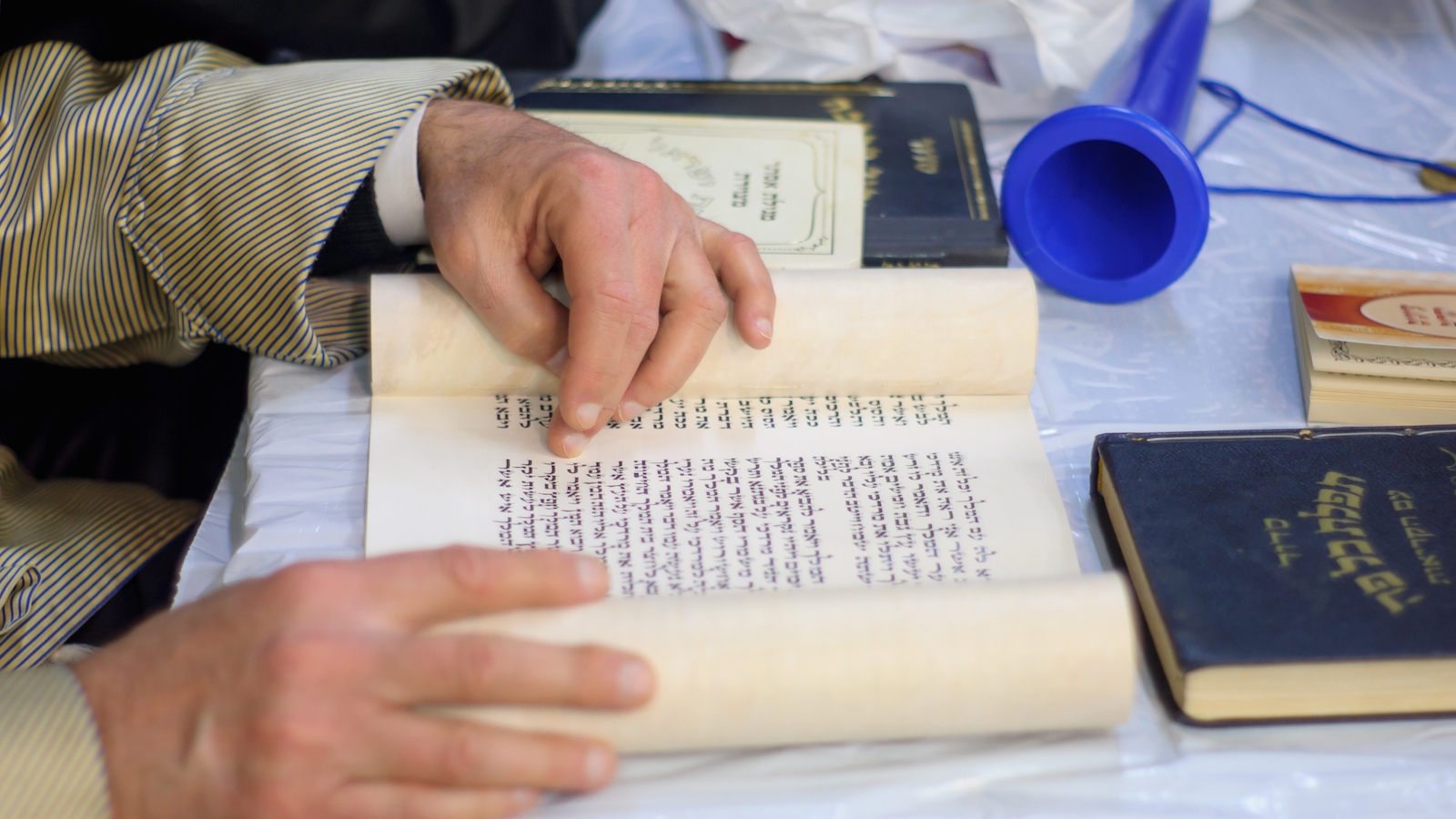Other than the reading, the services on are the same as on the other weekdays except for a few variations. The “Al Hanissim” paragraph is added in both the Amidah prayer and in the Grace after the Meals. The following is a translation of this prayer:
We thank You for the heroism, for the triumphs, and for the miraculous deliverance of our ancestors, in other days and in our time. In the days of Mordecai and Esther, in Shushan, the capital of Persia, the wicked Haman rose up against all Jews and plotted their destruction. In a single day, the 13th of Adar, the 12th month of the year, Haman planned to annihilate all Jews, young and old, and to permit the plunder of their property. You, in great mercy, thwarted his designs, frustrated his plot, and visited upon him the evil he planned to bring on others. Haman, together with his sons, suffered death on the gallows he had made for Mordecai.
During the morning services on Purim, the is read. The reading is from Exodus 17:8-16, describing Joshua’s victory over the people of Amalek with the sword. Amalek, you will recall, was said to have been related to Haman, and thus the choice of this reading for Purim morning.
Interestingly, unlike on , the Hallel psalms of praise [Psalms 113-118] are not recited on Purim. The rabbis sought to understand the reason for this. The explains that the redemption represented by Purim was not complete. True, the Jews were saved from the annihilation plotted by Haman, but they still remained subject to Ahasuerus (Talmud, Megillah 14a), whereas after the redemption commemorated by Passover, they ceased to be subjects of Pharaoh, and after Hanukkah they were no longer subject to Antiochus. Others explain that the reading of the Megillah performs the function of Hallel, while the Talmud also explains that Hallel is not said for events that took place outside the Land of Israel.
The day after Purim (i.e., the 15th of Adar) is known as Shushan Purim, referred to in the Book of Esther (9: 18) as the day when the Jews of Shushan, the capital of Persia, celebrated their triumph. It is celebrated as a semi-holiday. The Tachunun prayers of supplication are not to be recited at synagogue on this day.

Help us keep Jewish knowledge accessible to millions of people around the world.
Your donation to My Jewish Learning fuels endless journeys of Jewish discovery. With your help, My Jewish Learning can continue to provide nonstop opportunities for learning, connection and growth.
Excerpted with permission from Every Person’s Guide to Purim ( Jason Aronson, Inc.).



